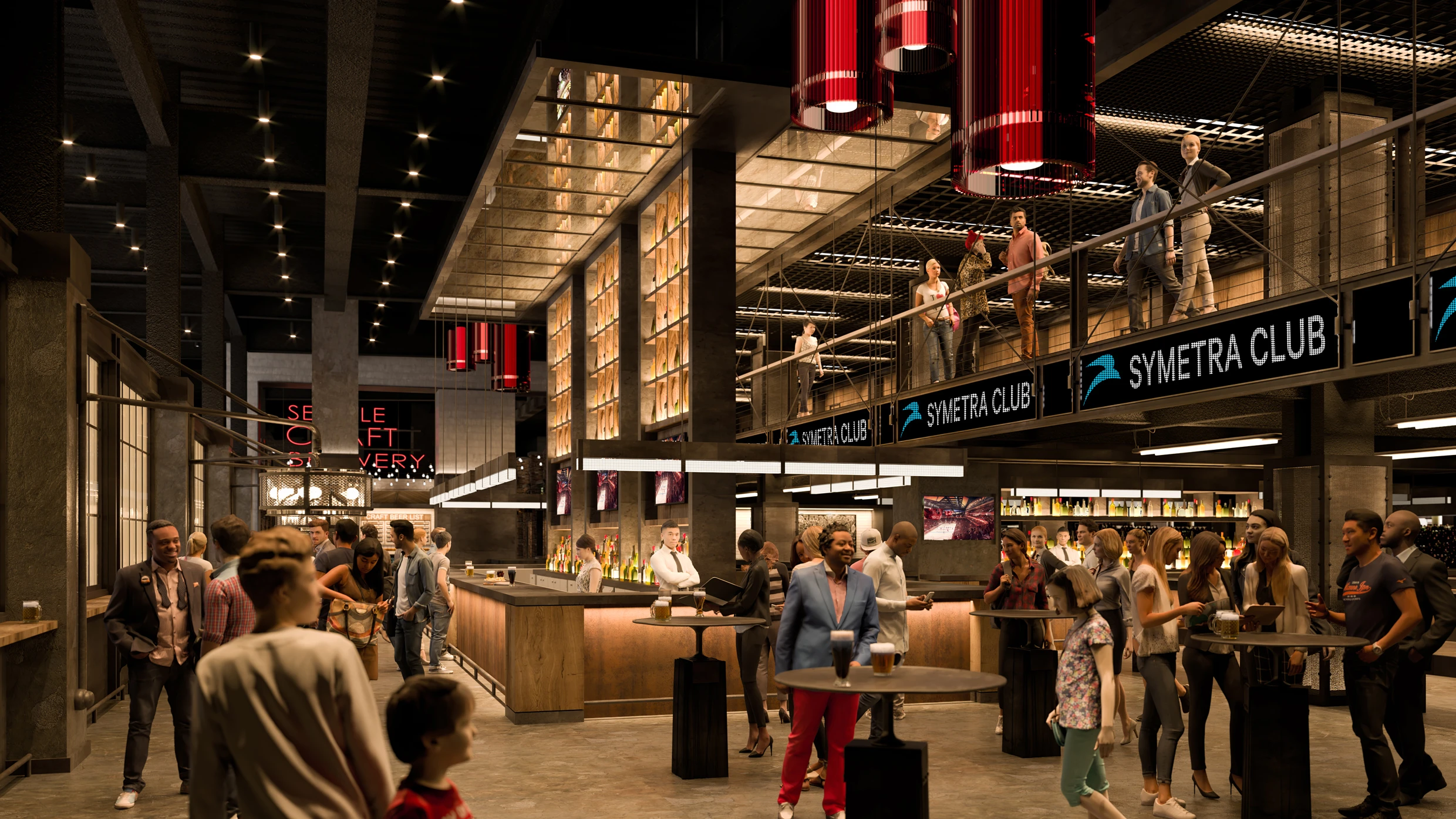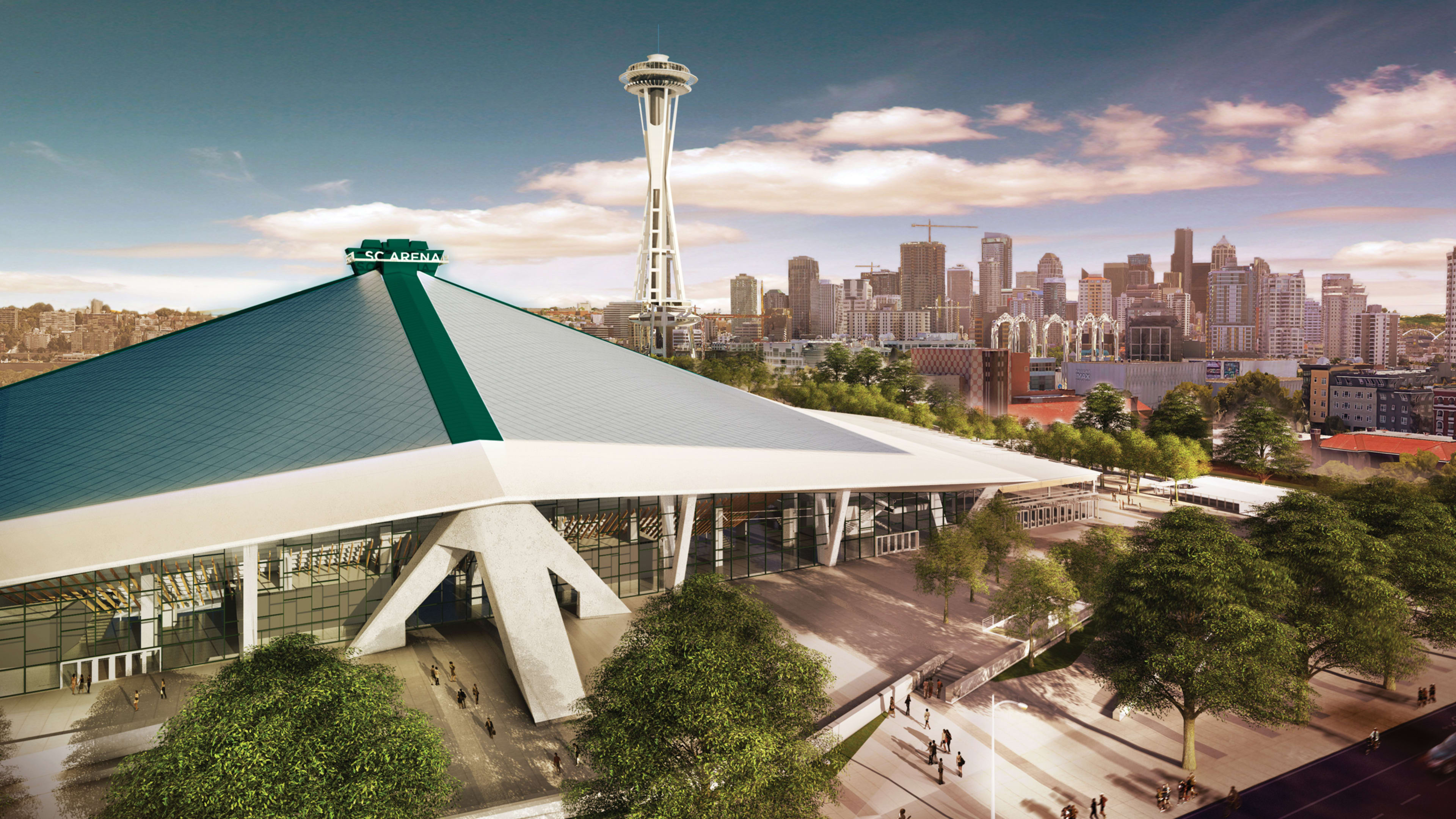In 2021, Seattle will have a new hockey team. And when hockey fans head to a game at the new arena where the team will play, they could choose to sit in some traffic on the freeway and pay for parking downtown, or they could hop on a bus or light rail—completely free of charge. NHL Seattle (the team doesn’t have a name yet) will be the third sports franchise in the country to offer free public transit to those going to games, as a way to ease traffic congestion in the city, increase access for fans, and do something good for the environment.
“We’re a very environmentally focused city,” says Rob Johnson, NHL Seattle’s vice president of transportation and a former Seattle City Council member and transit advocate. Still, in Washington state, greenhouse gas emissions saw a 6% spike last year, totaling more than 97 million metric tons, and vehicle emissions are the largest contributor. “One of the best ways for us to reduce our environmental footprint is to get people onto public transit and reduce the number of folks that are driving.”

For those hockey fans who aren’t environmentally motivated, though, Johnson hopes the idea of saving time and money—and maybe the opportunity to have a beer or two at the game without worrying about driving home or waiting for a surge-price ride share—will motivate attendees. He gives a hypothetical example: A fan coming from the Northgate neighborhood of Seattle might have a 90-minute trip to the arena by car, when accounting for freeway traffic, time navigating the garage, and then walking to the arena’s door. Plus, there’s the usually high price of parking near games and any tolls. The trip on public transit would be under a half hour (on the new light rail extension, set to open in 2021), drop you off right outside the arena, and cost nothing with your ticket.
Traffic is also an impediment to game attendance and enjoyment. Johnson points to the recent outdoor game where the Colorado Avalanche hosted the Los Angeles Kings in Colorado Springs. Traffic was so terrible that many people missed huge portions of the game and wanted refunds. “We’re very cognizant of that fact and that fan-experience impact,” Johnson says, “and we’re starting to hope that other sports franchises are going to be cognizant of that fact, too, and start to really encourage a lot more [transportation] choices, particularly when they exist.”
The way fans will access this free public transit isn’t yet solidified, as the team is still in negotiations with transit agencies, but Johnson says it will be integrated into the NHL Seattle App. Game-goers will be able to download a transit ticket on their phone, whether from a link or QR code via the app, by being transferred to a mobile ticketing app, or because the NHL Seattle App will work directly with ORCA Next Generation, the regional fair system’s mobile app. “Considering that we’re still 18 months from having our first hockey game, we’ve been working really closely with the transit agencies themselves to come up with a host of different solutions,” Johnson says.
NHL Seattle will subsidize these transit passes—the exact investment in transit will change over time, Johnson says, as light rail and bus service expands, and as the team learns more about where its transit-riding fans are traveling from. The policy will make it the third U.S. sports team to do so, behind the San Francisco Golden State Warriors and the Phoenix Suns. (Both those initiatives were spearheaded by Rick Welts, former Suns president and CEO and current Warriors president and COO.) Because NHL Seattle is a new venture, transit could be considered from the very start, but Johnson hopes others will give it more consideration as well. Seattle Rep, the city’s repertory theater, which is located in the same 74-acre campus as the NHL arena (along with other attractions like the Space Needle, Museum of Pop Culture, and more), will include a few free monorail tickets per early-bird season ticket package, as an incentive for theatergoers to renew their subscriptions early.
“We think we’re having a really positive impact not just on professional sports franchises but already on other cultural institutes in our neighborhood,” says Johnson. “And we’re hopeful this is really going to light a fire underneath a lot of other folks around professional sports to think about transportation as a really integral part of the fan experience.”
Recognize your brand’s excellence by applying to this year’s Brands That Matter Awards before the early-rate deadline, May 3.
